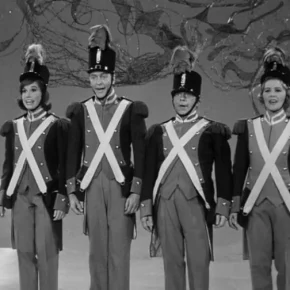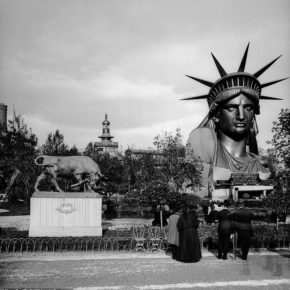For those who don’t know me, let me explain why I have an extreme aversion to theocracy.
I was born and raised in Utah. For those who aren’t familiar with Utah’s modern origins (the Natvie American tribes having had a longer history than what is relevant to this story), it was settled in 1847 by the Mormons, led by Brigham Young. The Mormons (properly “The Church of Jesus Christ of Latter-Day Saints” or LDS Church) had been driven out of their settlement in Nauvoo, IL, aftr being declared heretics, and sought to establish a permanent home where they could live a life by their own religious tenets (including polygamy). The original Utah Territory encompassed most of present-day Utah, Nevada, southern Idaho and northern and central California. Of course, the U.S. government was wary of this, and established military outposts in the Salt Lake valley to monitor the Mormons to ensure that they would pose no threat to the nation.
In order to attain full statehood, the U.S. government required two things to happen:
1. The Mormons had to make polygamy illegal; and
2. The state constitution and charter had to include the most explicit wording regarding separation of church and state, in order to prevent the creation of a theocracy.
Utah was granted statehood on July 24, 1896. Since then, the political makeup of the state legislature and executive branch has been primarily Mormon, though there have been exceptions (from 1917 to 1921, Utah even had a Jewish governor). Over the years, the percentage of Mormons in the legislature has steadily increased to its present level, which is roughly 90 percent, while the overall percentage of population who is LDS has gradually declined to around 67 percent.
What does this have to do with anything? Given the fact that the state legislature is overwhelmingly LDS (as is the governor’s seat), the LDS Church has a great deal of political influence on state affairs. The LDS Church is extremely conservative, both socially and fiscally, as well as a very lucrative business. The unspoken rule is that loyal churchgoers will “vote the right way” – i.e. vote for the Republican who is a loyal church member and will represent the church’s interests.
In most parts of the world, this is a theocracy. Growing up in Utah, I tended to lean Republican out of habit – my parents tended to vote Republican, and that was that. I attended a private school, though, where many children of expatriate liberals tended to go. In this environment, I was exposed to all sorts of non-mainstream (for Utah) thoughts and ideas: many of my classmates were progressive, the principal was an outspoken Democract, and my European history teachers were fond of the teachings of Karl Marx.
However, once I graduated from high school, I realized that I didn’t fit the GOP mold at all, and that I tended to agree with Democrats – both locally and on a national scale. Seeing this, I felt like more of an outsider in my home state than usual.
(Note that, in all fairness, most Democrats in Utah would be on the moderate-to-conservative end of the party scale.)
And it was the theocracy of Utah’s government that drove it all home. The people who joined the herd mentality of “voting for the right guy” weren’t thinking – a case of blind faith. Those who questioned such faith had to be ready to fight to maintain their social positions, both inside and outside of the ward house. If you asked a person why they supported the GOP, most times they couldn’t come up with concise, well-reasoned arguments – they were just doing “the right thing.” Never mind that the right thing often gutted social services (“the church will provide for those”), state infrastructure (“those potholes will fix themselves”) and environmental protections (“the smog is somebody else’s problem – I need to get my 6 kids to soccer, and the Excursion/Suburban/Hummer is the only thing that works!”). To question this is to be considered an infidel, a traitor to “family values” (note that the Utah public school system was the first in the coutry to teach an abstinance-only sex-ed curriculum, and that said school system is one of the most poorly-funded in the U.S., due in large part to reckless tax cuts).
And it was nigh-on-impossible to escape the encroachment of religion on politics, and thus on living a normal, everyday, enlightened life.
That is why I no longer live in Utah.
And that is why I abhor theocracy.
Now I do not oppose religion and the role that it plays in people’s lives. Indeed, religion and religious bodies can provide a lot of good to people and to society. But it is not the role of the government to endorse religious doctrine as law or as the rule of the land. The founders of the U.S. left England, in large part, to escape the restrictions of a state-run church, and wrote into the Constitution clear separations of church and state (“the congress… shall make no law respecting an establishment of religion, or prohibiting the free exercise thereof”). And I’m all for people practicing the religion of their choice, in private or in public.
But much as I respect their right to practice their religion, I also ask that government remain free of any religious agenda and that it not try to drive such an agenda down my throat. That’s what happened in Utah, and I see similar things happening on the national level – the Schiavo case being the most overt example to date.















Dan Ray
29 March 2005 — 09:03
I can ‘ditto’ almost all of this.
The thing that really chafes me is the transparency of the Republican agenda here. They’re all for States Rights, except where their pro-life (and, by extension, pro-suffering and anti-dignity) base latches onto a particular situation, in which case all but four of them vote to yank the issue away from the state.
I was deeply heartened by the widespread disapproval of that action. Bush & Co may have finally reached too far.